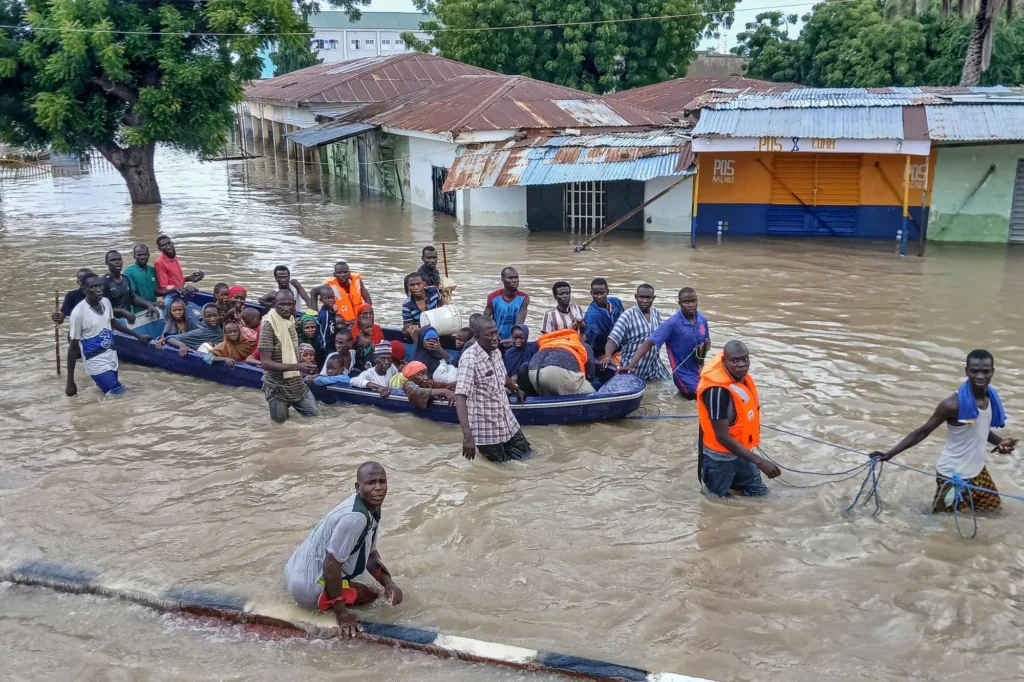The Nigeria Hydrological Services Agency (NIHSA) has issued a flood warning to Nigerians living along riverbanks in the River Benue Basin, urging them to relocate to safer areas immediately. The warning follows rising water levels on the River Benue due to increased rainfall, with the situation becoming critical for residents in vulnerable areas.
Umar Mohammed, Director-General of NIHSA, emphasized the need for swift action, warning that the situation could worsen without preventive measures. He urged residents near the River Niger to evacuate to safe areas, as floodwaters are being controlled at the Kainji and Jebba Dams. He added that the dam management is actively working to reduce the flood risks.
NIHSA also called for cooperation between citizens and emergency management agencies to help build resilience against flooding in Nigeria, reduce damage, and save lives.
This warning comes after the release of water from Cameroon’s Lagdo Dam, which has historically contributed to flooding in Nigeria. Just recently, the overflow of the Alau Dam in Maiduguri led to the deaths of over 30 people and destroyed thousands of homes.
Flooding Statistics and Impact
Flooding in Nigeria has been a persistent issue in recent years, causing significant damage to lives and property. In 2022, floods claimed 665 lives, displaced 2,437,411 people, and affected over 4.4 million individuals nationwide, according to the National Emergency Management Agency (NEMA).
In 2023, flood incidents were slightly lower but still caused significant devastation, with 159,157 people affected, 28 deaths, and 48,168 people displaced. The release of water from the Lagdo Dam was a major factor in many of the flooding incidents.
So far, in 2024, flooding has already displaced 625,239 people, claimed 259 lives, and affected over 1 million individuals between April and September. These alarming numbers highlight the ongoing challenge of managing flood risks in Nigeria.
Precautions and Recommendations As flood risks escalate, NIHSA continues to advise all at-risk communities to heed evacuation warnings, particularly those near major water bodies. Close collaboration with emergency agencies like NEMA and local governments is essential in building flood resilience, protecting lives, and minimizing property damage.
Furthermore, Flood preparedness and proactive measures remain critical in avoiding the catastrophic impacts seen in recent years.
Stay tuned to 9am News Nigeria for more Breaking News, Business News, Sports updates And Entertainment Gists.
















